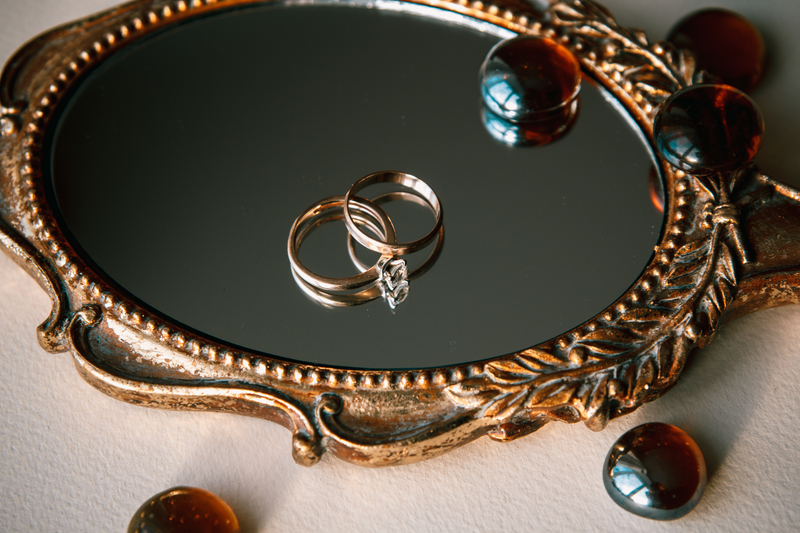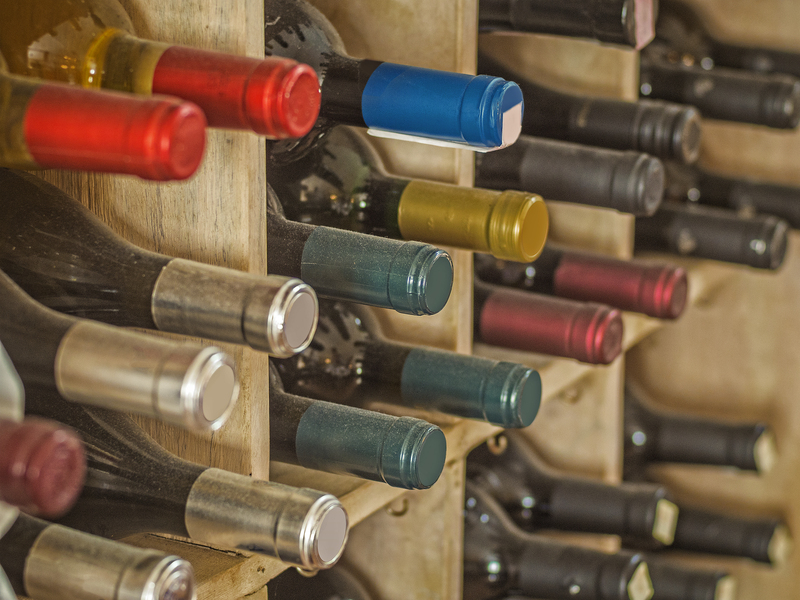Where to Take Your Old Pots and Pans for Recycling: The Ultimate Guide
Are your drawers overflowing with scratched, mismatched, or broken cookware? Don't let them take up valuable space or, worse, end up polluting landfills. In today's era of environmental consciousness, it's important to understand where to take your old pots and pans for recycling and breathe new life into these everyday kitchen items. This comprehensive guide will walk you through every step, from identifying recyclable materials to finding the best drop-off locations, and even exploring creative reuse alternatives.
Why Should You Recycle Old Pots and Pans?
Recycling cookware isn't just about tidying up your kitchen--it's also an environmental responsibility. Every year, millions of pounds of cookware are discarded, contributing to overflowing landfills and lost opportunity for materials reuse. Old pots and pans recycling helps conserve natural resources, reduces the demand for raw materials, lowers greenhouse gas emissions, and minimizes pollution.
- Saves Energy: Recycling metals uses significantly less energy compared to mining and producing new metals.
- Reduces Landfill Waste: Cookware can take hundreds of years to decompose, leaching chemicals as it breaks down.
- Supports the Circular Economy: Recycled materials can be transformed into new products, promoting sustainability.

What Types of Pots and Pans Can Be Recycled?
Not all cookware is created equal. Whether you're dealing with non-stick pans, cast iron skillets, or aluminum saucepans, identifying the recyclable cookware is the first step. Here's a breakdown:
Most Common Cookware Materials
- Aluminum: Highly recyclable--you'll just need to remove any plastic handles or lids.
- Stainless Steel: Very valuable and widely accepted at scrap metal facilities.
- Cast Iron: Exceptionally durable; accepted by most scrap yards and often cherished by restoration enthusiasts.
- Copper: Considered especially valuable, but may require some preparation before recycling.
- Non-Stick (Teflon-Coated): Recycling is more challenging--look for facilities accepting PTFE-coated metals or specialty recycling programs.
- Enamel-Coated: Sometimes accepted, but check with your local facility.
Pro Tip: Always remove all plastic, wooden, or rubber handles, and lids before taking your cookware for recycling unless otherwise specified by the recycler.
Where Can You Recycle Old Pots and Pans?
Wondering where to take your old pots and pans for recycling? Local resources abound if you know where to look. Here's a comprehensive guide:
1. Municipal Recycling Centers
Your first stop should be your local recycling center. Many communities offer drop-off bins for metal household items, including old cookware. However, rules and accepted materials can vary, so it's important to check your local guidelines.
- Visit your municipality's website for up-to-date information.
- Contact your local Department of Public Works or recycling officer.
- Ask if there's a scrap metal bin at your transfer station.
Note: Non-stick cookware is often not accepted with general metal recycling due to its coating. Confirm beforehand.
2. Scrap Metal Yards
Scrap metal yards are a fantastic option for recycling almost every type of metal cookware, including hard-to-recycle items. These businesses purchase, sort, and process unwanted metals. You may even earn a small amount of cash!
- Remove any non-metal parts and thoroughly clean the items.
- Separate different metals if possible (aluminum, stainless steel, etc.).
- Call ahead to ask about accepted materials, especially for non-stick pans or pans with rivets.
Popular Search Terms: "scrap metal recycling near me", "metal recycling center", "sell old pots and pans".
3. Specialty Cookware Retailers
Some kitchenware brands and cookware stores have take-back or recycling programs for old pots and pans.
- Bed Bath & Beyond, Williams Sonoma, Sur La Table - occasionally offer trade-in events or accept certain cookware for recycling. Check seasonal promotions and brand announcements.
- GreenPan and other eco-conscious brands sometimes launch take-back initiatives for their products.
Pro Tip: Ask about loyalty points or in-store credit as an incentive for returning your old cookware!
4. Household Hazardous Waste (HHW) Events
Many governments hold periodic Household Hazardous Waste collection events or metal recycling drives. These are ideal for hard-to-dispose-of items like Teflon-coated pans, especially if concerned about the environmental impact of non-stick coatings.
- Check your city or county website for upcoming event dates.
- Review event guidelines about accepted materials.
5. Charities and Donation Centers
If your old pots and pans are still usable, though scratched or mismatched, donate them! Many organizations will happily accept gently used cookware for families in need.
- Goodwill and Salvation Army: Nationwide donation centers accepting usable cookware.
- Local shelters, soup kitchens, and community centers: Can make excellent use of functional-but-older pans.
- Habitat for Humanity ReStores: Often accepts building materials and home goods, including pots and pans.
Remember: Only donate items that are safe and in working condition.
6. Mail-in Recycling Programs
For hard-to-recycle items, check mail-in recycling options such as TerraCycle, which specializes in items many curbside programs won't accept.
- Visit TerraCycle and search for "cookware recycling."
- Follow the instructions for packing and shipping your old pans.
7. Retail Recycling Bins
Big-box retailers like Home Depot and Lowe's focus mainly on light bulbs or electronics, but it's worth checking for periodic home goods recycling events or bins at your local store.
How to Prepare Your Pots and Pans for Recycling
Before you drop off your old pots and pans for recycling, follow these basic steps to ensure your items are properly accepted and processed:
- Clean thoroughly: Remove all food residue to keep facilities sanitary.
- Disassemble if possible: Remove all non-metallic parts (handles, knobs, lids).
- Sort by material: Group aluminum, steel, and cast iron items separately if required by your recycler.
- Remove labels/stickers: Peel off any plastic or paper labels.
- Secure sharp edges: Wrap broken pieces for safety.
Special instructions: Read recycler guidelines for non-stick pans, cookware with plastic or wood parts, and multi-material items.
Are Non-Stick Pans and Teflon Cookware Recyclable?
Non-stick pans present extra recycling challenges due to their PTFE (Teflon) coatings, which are not biodegradable and can be harmful if incinerated. Most curbside programs and many scrap yards do not accept non-stick cookware unless the coating is removed. Here's what you can do:
- Contact the manufacturer: Companies like T-fal and Calphalon occasionally offer mail-back or special recycling guidance for their products.
- Special waste collection events: Attend events specifically geared for hazardous or hard-to-recycle household goods.
- TerraCycle: Explore their mail-in options for cookware and Teflon-coated items.
Pro Tip: If your pan's non-stick coating is severely scratched or flaking, do not donate; recycle responsibly instead.
Creative Ways to Reuse and Upcycle Old Cookware
If recycling isn't practical, consider giving your old pots and pans a second life through creative reuse. Here are a few inspiring ideas:
- Garden Planters: Drill drainage holes and use for herbs or flowers.
- Outdoor Bird Baths: A shallow pan makes a perfect base for birds to splash around.
- Wall Art: Turn old frying pans into clock faces, mirrors, or wall decor with a splash of paint.
- Organizer Trays: Use deep pots and saucepans as tool or toy storage in the garage or playroom.
- Candle Holders or Fire Pits: Repurpose cast iron or steel pans as rustic outdoor candle holders or mini fire bowls.
Remember to clean and sand down sharp edges before upcycling.
Frequently Asked Questions (FAQ) About Pots and Pans Recycling
1. Can I put pots and pans in the curbside recycling bin?
Usually, no. Most municipal recycling programs do not process bulky metal items in curbside bins, as they can damage sorting machinery. Use dedicated scrap metal drop-offs or collection events.
2. My cookware is rusty or damaged--can it still be recycled?
Absolutely! Even rusty, warped, or broken cookware can be recycled at a scrap yard or specialty metal recycling facility. Just be sure to remove all non-metal attachments.
3. Do thrift stores accept non-stick pans?
Only if the coating is in very good condition--no flakes or significant scratches. Damaged non-stick cookware should never be donated, as it's not safe for use. Opt for recycling instead.
4. Is it safe to recycle non-stick pans?
If the facility accepts them, yes--just clarify their policy and follow any preparation requirements (such as removing the handle or cleaning the pan). Many facilities, however, do not accept non-stick coatings.

Quick Reference List: Where to Recycle Old Cookware
- Municipal Recycling Centers
- Scrap Metal Yards
- Specialty Cookware Retailers
- Household Hazardous Waste Events
- Donation Centers and Charities
- Mail-in Recycling Programs (e.g., TerraCycle)
Conclusion: Recycling Your Old Pots and Pans is Easy and Crucial
Recycling cookware doesn't have to be complicated--but it is crucial for a healthier, more sustainable planet. From municipal recycling centers and scrap metal facilities to creative upcycling projects and donation centers, there are plenty of responsible options for disposing of your worn-out pots and pans. The next time you refresh your cookware, remember these tips on where to take your old pots and pans for recycling so you can declutter your space and make a positive impact!
Ready to let go of your old cookware? Use this guide to recycle responsibly and inspire others to do the same!
